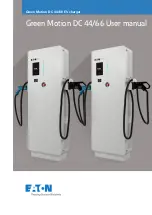
Your vehicle has higher ground
clearance that allows you to travel
over bumps, obstacles, and rough
terrain. It also provides good
visibility so you can anticipate
problems earlier.
Because your vehicle rides higher
off the ground, it has a high center
of gravity that can cause it to roll
over if you make abrupt turns. Utility
vehicles have a significantly higher
roll over rate than other types of
vehicles.
To prevent rollovers or loss of
control:
Take corners at slower speeds
than you would with a passenger
vehicle.
Avoid sharp turns and abrupt
maneuvers whenever possible.
Do not modify your vehicle in any
way that would raise the center of
gravity.
Do not carry heavy cargo on the
roof.
You should do the following checks
and adjustments before you drive
your vehicle.
Make sure all windows, mirrors,
and outside lights are clean and
unobstructed. Remove frost, snow,
or ice.
Make sure the doors and tailgate
are securely closed and locked.
Check the steering wheel
adjustment (see page
).
Check the adjustment of the
inside and outside mirrors (see
page
).
Check the seat adjustment (see
page
).
Check that any items you may be
carrying are stored properly or
fastened down securely.
When you start the engine, check
the gauges and indicators in the
instrument panel (see page
).
Visually check the tires. If a tire
looks low, use a gauge to check its
pressure.
Fasten your seat belt. Check that
your passengers have fastened
their seat belts (see page
).
1.
2.
3.
4.
5.
6.
7.
8.
9.
84
92
76
14
57
See page
for additional guidelines
for driving off-highway.
192
Driving Guidelines, Preparing to Drive
Driving
Driving Guidelines
Preparing to Drive
170
















































